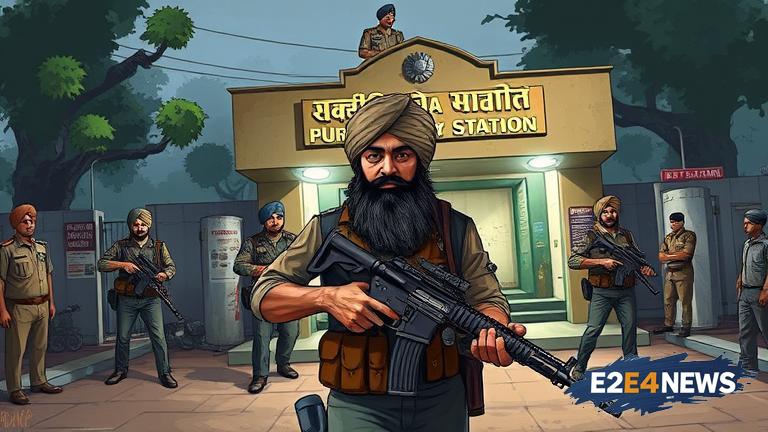In a significant breakthrough, Indian authorities have apprehended a militant affiliated with the Babbar Khalsa group in Delhi, in connection with a rocket-propelled grenade (RPG) attack on a police station in Punjab. The arrest underscores the country’s relentless pursuit to dismantle terrorist networks and ensure national security. The Babbar Khalsa International (BKI) is a Sikh separatist organization that has been involved in various terrorist activities in the past. The group’s primary objective is to establish an independent Sikh state, Khalistan. The RPG attack on the police station in Punjab was a brazen attempt to disrupt law and order in the region. Fortunately, the attack did not result in any casualties, but it highlighted the growing threat of terrorism in the country. The arrested militant, whose identity has not been disclosed, is believed to have played a key role in the attack. The investigation is ongoing, and authorities are working to uncover the larger conspiracy behind the attack. The arrest is a testament to the Indian security agencies’ vigilance and dedication to combating terrorism. The country has been grappling with the menace of terrorism for decades, and the government has taken several measures to strengthen its counter-terrorism apparatus. The National Investigation Agency (NIA) has been actively involved in probing terrorist cases, including those related to the Babbar Khalsa group. The NIA has arrested several militants and foiled numerous terror plots in the past, demonstrating its effectiveness in combating terrorism. The Indian government has also taken steps to improve intelligence gathering and sharing, which has helped in preventing several terrorist attacks. The arrest of the Babbar Khalsa militant is a significant achievement, but the threat of terrorism remains a pressing concern for the country. The government must continue to work tirelessly to identify and neutralize terrorist threats, and the public must remain vigilant and cooperate with the authorities to prevent such attacks. The international community must also acknowledge the threat posed by groups like the Babbar Khalsa and cooperate with India to combat terrorism. The RPG attack on the police station in Punjab is a reminder that terrorism can strike anywhere, and it is essential to remain alert and prepared to respond to such threats. The Indian security agencies have shown remarkable resilience and determination in the face of terrorist threats, and their efforts have saved countless lives. The country must continue to support and strengthen its security agencies to ensure that they can effectively combat terrorism. The arrest of the Babbar Khalsa militant is a welcome development, but it is crucial to recognize that the threat of terrorism is ongoing and requires sustained efforts to combat. The government and the public must work together to prevent terrorist attacks and ensure that those responsible are brought to justice. The international community must also recognize the threat posed by groups like the Babbar Khalsa and take concrete steps to prevent the spread of terrorism. In conclusion, the arrest of the Babbar Khalsa militant is a significant achievement, but it is essential to remain vigilant and continue to work towards combating terrorism. The Indian government and security agencies must continue to take proactive measures to prevent terrorist attacks, and the public must cooperate with the authorities to ensure national security.





